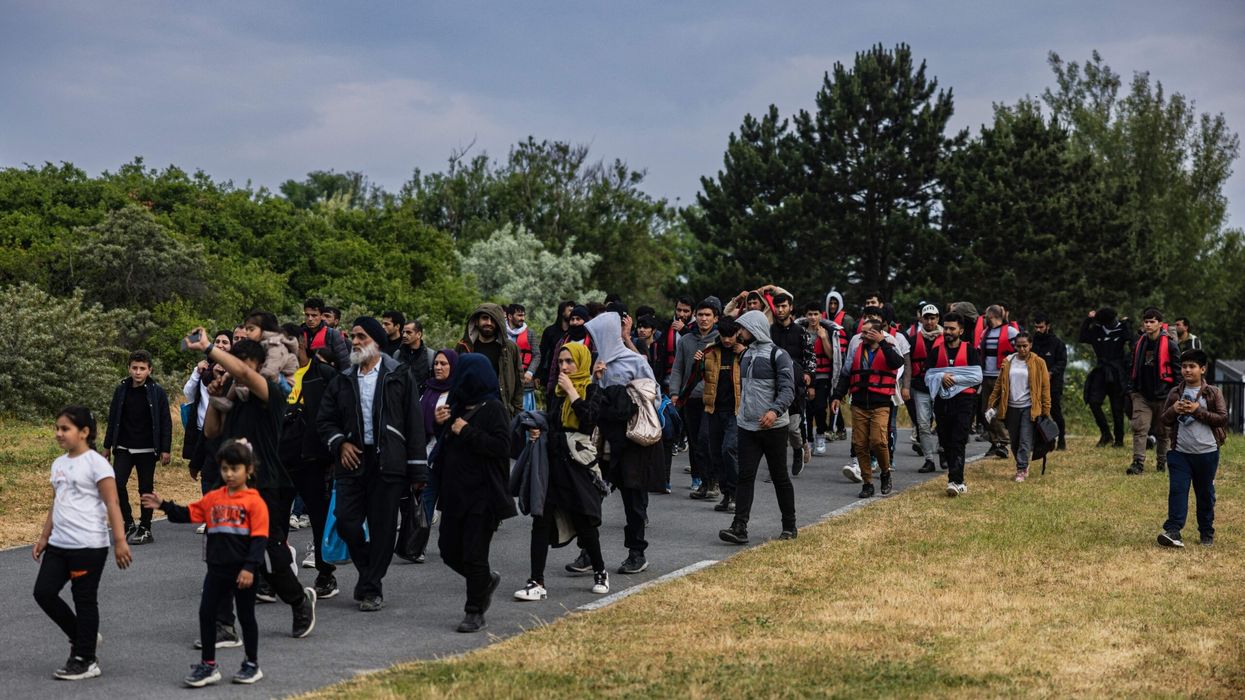In Quetta, an undercover BBC journalist recently encountered a people smuggler named Azam, orchestrating illicit passages out of Pakistan. Azam explained his business model, asserting that individuals aged between 12 and 18 were also viable clients.
For a sum of 2.5 million Pakistani rupees ($9000; £7,500), a young man could, according to Azam, safely reach Europe within approximately three weeks. The journey involves crossing the Iran border on foot and then travelling by road through Turkey to Italy, The BBC reported.
Azam reassures potential clients, advising them to carry essentials such as snacks, good-quality shoes, and a few sets of clothes. He emphasises that water could be purchased in Quetta and assures that upon reaching Quetta, a designated individual would receive them.
He claims that hundreds of migrants cross the Pakistan-Iran border daily, downplaying the risks involved. This information was revealed to an undercover BBC journalist posing as someone looking to bring his brother to the UK.
Amid soaring inflation and a declining Pakistani rupee, a significant number of people are seeking to leave the country. Pakistani authorities disclosed to the BBC that nearly 13,000 individuals left Pakistan to go to Libya or Egypt in the first half of 2023, compared to around 7,000 in the whole of 2022.
These journeys are perilous; a tragic incident occurred in June when a crowded fishing vessel, carrying at least 350 Pakistanis, sank off the Greek coast. While some, like Azam, downplay the risks, migrants travelling via Libya often fall victim to militias and criminal gangs.
Saeed (name changed), a survivor, revealed he was kidnapped in Libya and released after three months, only after his family paid a ransom of $2,500 (£2,000).
Numerous smugglers are openly operating on popular social media platforms such as Facebook and TikTok, amassing tens of thousands of followers.
Since May, these platforms have been tracked, uncovering smugglers' use of euphemisms like "dunki" and "game" to promote illegal migration routes to Europe.
Smugglers share videos on social media depicting migrants concealing in woods and boarding minivans, featuring agents' names and phone numbers. Additionally, on WhatsApp, customers and agents communicate in group chats with hundreds of members, discussing upcoming "games."
Five other smugglers who recommended "taxi routes," were also spoken to, with one offering transportation from France to the UK for £1,000 ($1,228).
The findings were reported to Meta (owner of Facebook and WhatsApp) and TikTok, informing them that their platforms were being used for illegal people smuggling.
Meta removed links to flagged Facebook groups but not the profiles, citing privacy policies. While TikTok took down the alerted accounts, emphasising their zero tolerance for content supporting human smuggling.
Almost a year ago, Saeed left his town in Pakistani-administered Kashmir due to limited job opportunities and border clashes with Indian-administered Kashmir. Living near the Line of Control, the de facto border between India and Pakistan, he moved to Italy ten months ago.
Influenced by TikTok videos and a friend's experience, he believed the journey to Europe would be swift, and take 15-20 days, but it took him over seven months, contrary to his expectations.
Awaiting the outcome of his asylum claim in Italy, Saeed expresses regret over his perilous journey, labelling it "a journey of death."
Despite this, he actively shares TikTok videos showcasing his new life, participating in a trend popular among young Pakistani men in Europe. These videos, including one titled "Pakistan to Libya," depict his journey and upbeat experiences.
However, Saeed argues that these clips are a form of art and not a true reflection of society.
Two weeks after the initial contact, the undercover journalist calls the smuggler once more, and reveals his identity. However, when Azam is confronted about the risks of the illegal routes he is promoting, he abruptly hangs up.




